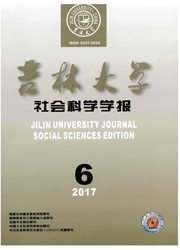

 中文摘要:
中文摘要:
气候变暖的生态环境危机是关系到全人类生存与发展之共同利益的全球性问题。面对日益严峻的全球气候变暖的紧张形势,发达国家与发展中国家应在国际气候谈判的平台上搁置争议、通力合作,实现全球气候的共同治理与保护。然而在国际气候谈判中,不同国家在本国经济发展与全球气候保护问题上均有各自的利益诉求。在各国为自身谋求更多的排放权与发展空间的过程中,作为发展中国家的各国寄希望于在国际气候谈判中通过集体行动增进共同利益,然而由于发展中国家集团内部就减排与发展问题的利益冲突,特别是"搭便车"行为的普遍存在,致使发展中国家在与发达国家集团的气候谈判博弈中难以形成"合力"。本文旨在透过新制度经济学与公共选择理论的视角,就如何切实保护发展中国家在全球气候治理与本国经济发展中的权益问题,从国际气候谈判规则的改革与重构,以及发展中国家在国际气候谈判中应当坚持的原则这两个方面,给出一个合理的解释与建议。
 英文摘要:
英文摘要:
The ecological crisis of climate warming is a global problem which is related to the common interests of human survival and development. Facing to the tense situation of the increasingly severe global warming, the developed and developing countries should put aside the disputes and act with united strength on the platform of the international climate negotiation in order to realize the governance and protection of global climate. However, every country has his own interests in economic developmem and the protection of global cli- mate during the international climate negotiation. While different countries pursuiting more emissions and development space, developing countries are hoping to promote their common interests through collective action during the international climate negotiation. Because of the internal conflicts of interests on the issue of emission and development in the group of developing countries, especially, the prevalence of "hitchhiking" behavior, causes the developing countries have difficulty in forming "united force" to against the developed countries during the international climate game. Via the perspective of the new institutional economies and the theory of public choice, according to the re- form and reconstruction on the rules of international climate negotiation, as well as the principles which the developing countries in the in- ternational climate negotiation should be adhered these two aspects, this article aims to give a reasonable explanation and suggestion on how to effectively protect the interests of the developing countries in global climate governance and national economic development.
 同期刊论文项目
同期刊论文项目
 同项目期刊论文
同项目期刊论文
 期刊信息
期刊信息
